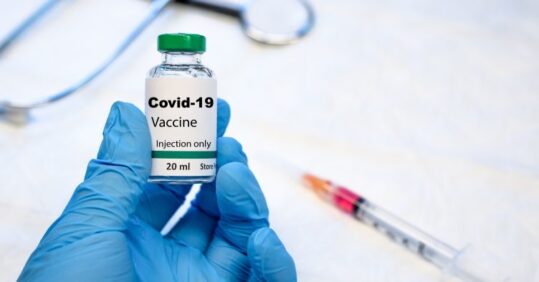Nurses should ‘lead by example’ by getting the Covid-19 vaccine, says CNO

Health and social care workers including nurses have a duty to protect themselves and ‘lead by example’ by getting the Covid-19 vaccine, leading healthcare professionals in England have said.
Chief nursing officer Ruth May and chief nurse for adult social care Professor Deborah Sturdy were among the senior healthcare figures who penned a letter to frontline staff last Wednesday urging them to take up the coronavirus vaccine.
Related Article: NHS 10-year plan: What does it mean for nursing?
They wrote: ‘As people who work directly with some of those who are most vulnerable, we have a collective duty both to protect ourselves for their sake, and to lead by example. So please join us in taking this important step and get your Covid-19 vaccine as soon as you are invited to.’
The letter warned that healthcare workers are ‘at greater risk of exposure to Covid-19‘, which is why they ‘are among the first groups to be offered the vaccine’ and are ‘strongly encouraged’ to take it up.
It also contained reassurances that the Pfizer/BioNTech, the Oxford/AstraZeneca and Moderna Covid vaccines – the latter of which is expected to be available later this year – were found to be ‘safe and effective’ following ‘strict approval processes’.
It continued: ‘The MHRA have assessed both vaccines that are available and approved them for use because they have a good safety record and are highly effective, with both vaccines offering a high level of protection from illness from two weeks after the first dose.’
Related Article: Funded nurse workforce plan needed for neighbourhood health services
Staff who have not been offered the vaccine yet ‘don’t need to do anything’ as their employer or local vaccination team ‘will be in touch with details soon,’ it added.
It also reminded those who have been vaccinated to ‘continue to follow all of the guidance on preventing the spread of the virus in the workplace, and outside of it’.
Related Article: Over one million children living in homes causing asthma and chronic illness
The government aims to offer the first Covid-19 to all frontline health and care staff by the middle of February, alongside the other top priority groups of care home residents, people aged over 70, and those who are extremely clinically vulnerable.

See how our symptom tool can help you make better sense of patient presentations
Click here to search a symptom




